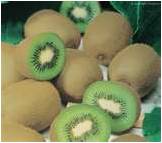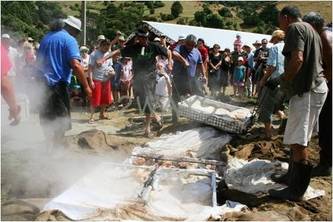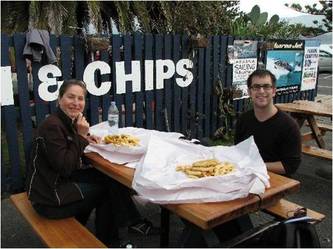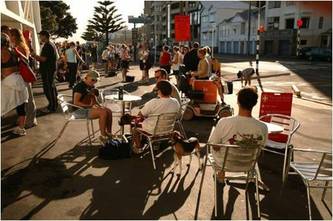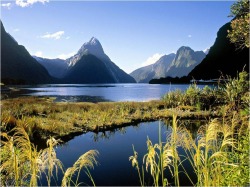Human Geography
History of New Zealand
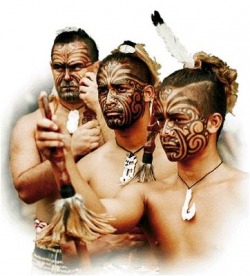
Maori People
· First people in New Zealand were the Maori (MOWR-ee)
o Maori came from Pacific Islands to the North 1,000 years ago
o Moa hunters
§ Moa main prey
o Farming, fishing, hunting
· Abel Tasman, Dutch explorer, was first European in New Zealand in 1642
· James Cook, British explorer, made contact with Maori in 1769
· First European settlers came from British Colony in Australia
o Missionaries, traders, and whalers
o 1840 treaty with Maori leaders gave British control of the islands
§ British agreed to protect Maori rights
· Troubles occurred between Maori and British settlers
o British introduced diseases
o British began taking Maori lands
o Maori wars 1845-1872
§ Maori lost war
· Independence:26 September 1907 (from the UK)
· Farming and trade between British and New Zealanders
· New Zealand sent troops to fight alongside British in WWI and WWII
o Maori came from Pacific Islands to the North 1,000 years ago
o Moa hunters
§ Moa main prey
o Farming, fishing, hunting
· Abel Tasman, Dutch explorer, was first European in New Zealand in 1642
· James Cook, British explorer, made contact with Maori in 1769
· First European settlers came from British Colony in Australia
o Missionaries, traders, and whalers
o 1840 treaty with Maori leaders gave British control of the islands
§ British agreed to protect Maori rights
· Troubles occurred between Maori and British settlers
o British introduced diseases
o British began taking Maori lands
o Maori wars 1845-1872
§ Maori lost war
· Independence:26 September 1907 (from the UK)
· Farming and trade between British and New Zealanders
· New Zealand sent troops to fight alongside British in WWI and WWII
GOVERNMENT
The Flag of New Zealand
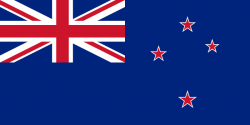
Colors and Symbols on the Flag
Flag Description
Blue with the UK flag in the top-left corner
Four red five-pointed stars with white edges:
located on the right side of the flag
Symbolism
The stars symbolize the Southern Cross constellation
Flag Description
Blue with the UK flag in the top-left corner
Four red five-pointed stars with white edges:
located on the right side of the flag
Symbolism
The stars symbolize the Southern Cross constellation
Relations with Other Countries
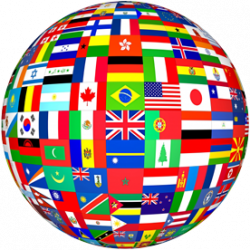
New Zealand is Worldly!
o New Zealand is a member of many international organizations:
ADB, ANZUS (US suspended security obligations to NZ on 11 August 1986), APEC, ARF, ASEAN (dialogue partner), Australia Group, BIS, C, CP, EAS, EBRD, FAO, FATF, IAEA, IBRD, ICAO, ICC, ICCt, ICRM, IDA, IEA, IFAD, IFC, IFRCS, IHO, ILO, IMF, IMO, IMSO, Interpol, IOC, IOM, IPU, ISO, ITSO, ITU, ITUC, MIGA, NSG, OECD, OPCW, Paris Club (associate), PCA, PIF, Sparteca, SPC, UN, UNCTAD, UNESCO, UNHCR, UNIDO, UNIFIL, UNMIS, UNMIT, UNTSO, UPU, WCO, WFTU, WHO, WIPO, WMO, WTO.
ADB, ANZUS (US suspended security obligations to NZ on 11 August 1986), APEC, ARF, ASEAN (dialogue partner), Australia Group, BIS, C, CP, EAS, EBRD, FAO, FATF, IAEA, IBRD, ICAO, ICC, ICCt, ICRM, IDA, IEA, IFAD, IFC, IFRCS, IHO, ILO, IMF, IMO, IMSO, Interpol, IOC, IOM, IPU, ISO, ITSO, ITU, ITUC, MIGA, NSG, OECD, OPCW, Paris Club (associate), PCA, PIF, Sparteca, SPC, UN, UNCTAD, UNESCO, UNHCR, UNIDO, UNIFIL, UNMIS, UNMIT, UNTSO, UPU, WCO, WFTU, WHO, WIPO, WMO, WTO.
ECONOMY
· Currency: New Zealand Dollar (NZD)
· Health of the economy:
o Free market economy
o Was in a recession but pulled themselves out of it in 2009
o Now controlling government spending when they are developing infrastructure and raising
productivity growth
· Combination of manufacturing, farming, and tourism
· Major exports
o Dairy products, fish, meat, and wool
· Economy was based on farmed goods, but manufacturing and services are now more important
· Pastures support millions of sheep and cattle
· Major crops:
o Wheat, barley, fruits, vegetables such as potatoes
o World’s largest producer of kiwi fruit
· Film Industry
o Many movies and television programs are filmed there
· Tourism
o Very important
o Many important landscapes that are famous
· Health of the economy:
o Free market economy
o Was in a recession but pulled themselves out of it in 2009
o Now controlling government spending when they are developing infrastructure and raising
productivity growth
· Combination of manufacturing, farming, and tourism
· Major exports
o Dairy products, fish, meat, and wool
· Economy was based on farmed goods, but manufacturing and services are now more important
· Pastures support millions of sheep and cattle
· Major crops:
o Wheat, barley, fruits, vegetables such as potatoes
o World’s largest producer of kiwi fruit
· Film Industry
o Many movies and television programs are filmed there
· Tourism
o Very important
o Many important landscapes that are famous
CULTURE
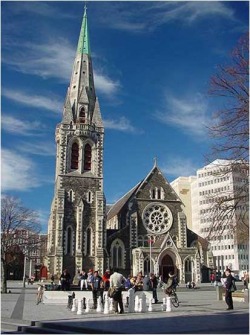
Christchurch
· Official Languages
o English
o Maori
o Sign Language
· Religions
As of the 2001 census
o Anglican 14.9%
o Roman Catholic 12.4%
o Presbyterian 10.9%
o Methodist 2.9%
o Pentecostal 1.7%
o Baptist 1.3%
o Other Christian 9.4%
o Other 3.3%
o Unspecified 17.2%
o None 26%
· Customs and Traditions
o One custom in New Zealand is shearing sheep
§ The population of sheep outnumbers people 13 to 1. Some of the best sheep shearers can
shear a whole sheep in less than one minute. Some of the best shearers in the world come to New
Zealand to compete. The winners receive local fame and money as a prize.
§ Another tradition is in food (see Maori hangi)
o English
o Maori
o Sign Language
· Religions
As of the 2001 census
o Anglican 14.9%
o Roman Catholic 12.4%
o Presbyterian 10.9%
o Methodist 2.9%
o Pentecostal 1.7%
o Baptist 1.3%
o Other Christian 9.4%
o Other 3.3%
o Unspecified 17.2%
o None 26%
· Customs and Traditions
o One custom in New Zealand is shearing sheep
§ The population of sheep outnumbers people 13 to 1. Some of the best sheep shearers can
shear a whole sheep in less than one minute. Some of the best shearers in the world come to New
Zealand to compete. The winners receive local fame and money as a prize.
§ Another tradition is in food (see Maori hangi)
COMMON FOODS
o Pavlova
§ The country’s national desert
§ Made of meringue, fresh fruit, and cream
o Tea
§ popular
§ reflects NZ’s British heritage
o Favorite Foods
§ Lamb
§ Clam soup
§ Sweet Potatoes
o Other common foods
§ pork and cervena (venison)
§ salmon
§ crayfish (lobster)
§ Bluff oysters
§ Paua
· abalone
§ Mussels
§ Scallops
§ Pipis and tuatua
· Kinds of New Zealand shellfish
§ Kumara
· Sweet potato
§ Kiwifruit
§ Tamarillo
§ Fish and Chips
· Served wrapped in paper
o Typical in summer
§ Eating at cafes and outdoors such as barbeques
o A traditional meal
§ Maori hangi
· True taste of New Zealand
· Smoky flavor
· Essential culinary experience
· Cooked underground
· A deep hole is dug in the ground and lined with burning stones and covered with
plant life
· Food consists of chicken, pork, lamb, potatoes, kumara, and other vegetables
· Food is placed on top and the entire oven is showered lightly with water and
preserved with more plants
· Last, but not least, the hole is filled with earth and left to steam for many hours
· Typically prepared for special occasions
· It is tradition for the men to dig and get the hole ready and the women make the
food for the hole. Everyone in the extended family help to prepare the meal. The gathering is
sociable, pleasurable, and calm with the family most likely eating the feast under a marquee, or
large tent.
§ The country’s national desert
§ Made of meringue, fresh fruit, and cream
o Tea
§ popular
§ reflects NZ’s British heritage
o Favorite Foods
§ Lamb
§ Clam soup
§ Sweet Potatoes
o Other common foods
§ pork and cervena (venison)
§ salmon
§ crayfish (lobster)
§ Bluff oysters
§ Paua
· abalone
§ Mussels
§ Scallops
§ Pipis and tuatua
· Kinds of New Zealand shellfish
§ Kumara
· Sweet potato
§ Kiwifruit
§ Tamarillo
§ Fish and Chips
· Served wrapped in paper
o Typical in summer
§ Eating at cafes and outdoors such as barbeques
o A traditional meal
§ Maori hangi
· True taste of New Zealand
· Smoky flavor
· Essential culinary experience
· Cooked underground
· A deep hole is dug in the ground and lined with burning stones and covered with
plant life
· Food consists of chicken, pork, lamb, potatoes, kumara, and other vegetables
· Food is placed on top and the entire oven is showered lightly with water and
preserved with more plants
· Last, but not least, the hole is filled with earth and left to steam for many hours
· Typically prepared for special occasions
· It is tradition for the men to dig and get the hole ready and the women make the
food for the hole. Everyone in the extended family help to prepare the meal. The gathering is
sociable, pleasurable, and calm with the family most likely eating the feast under a marquee, or
large tent.
Current Issues Facing New Zealand
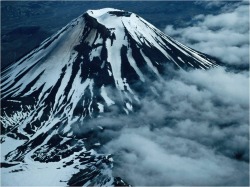
Ngauruhoe Volcano
o Manufacturing more important in last 20 years
o Most industries are tied to agriculture
o Tourism is a very important industry
o Film is becoming more popular due to landscapes
o Small market means difficulty in developing an
‘economy of scale’ (large production of goods that
help to lower cost of each item produced)
o Heavy dependence on exports and changes to the world’s
economy (EU) can impact NZ economy
o Global trade is vital to New Zealand
· A lot of concerns for indigenous plant life
o May be brought on by humans or naturally
happening events.
o Some threats include damage from exotic plants,
weeds, and animals.
· New Zealand Plant Conservation Network
· Working to bring about awareness throughout the country
o Most industries are tied to agriculture
o Tourism is a very important industry
o Film is becoming more popular due to landscapes
o Small market means difficulty in developing an
‘economy of scale’ (large production of goods that
help to lower cost of each item produced)
o Heavy dependence on exports and changes to the world’s
economy (EU) can impact NZ economy
o Global trade is vital to New Zealand
· A lot of concerns for indigenous plant life
o May be brought on by humans or naturally
happening events.
o Some threats include damage from exotic plants,
weeds, and animals.
· New Zealand Plant Conservation Network
· Working to bring about awareness throughout the country
